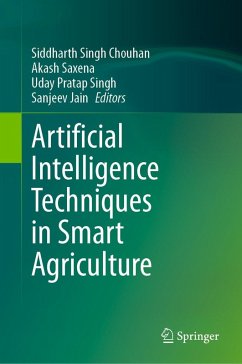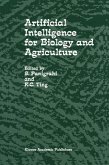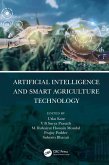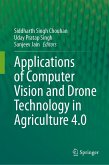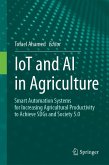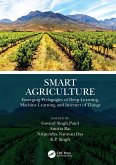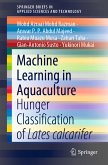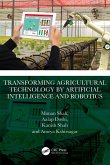This edited volume explores the integration of artificial intelligence to improve crop production. It addresses the critical need for intelligent crop management in light of the world's escalating population. Encompassing a spectrum of technologies, including computer vision, image processing, soft computing, machine learning, and deep learning, the book explores advancements in decision-making systems. It integrates data science methodologies, Internet of Things, wireless communications, and a range of sensors and actuators to provide precise, timely, and cost-effective solutions to agricultural challenges, ultimately enhancing both the quality and quantity of crop yields. The book empowers its audience to direct their efforts towards designing models and prototypes that benefit society and the environment, making it an indispensable resource for those eager to shape the future of intelligent agriculture.
It serves as a comprehensive guide for students, scholars, and academicians keen on delving into the transformative field of artificial intelligence in agriculture. Researchers, scientists, and field experts will find invaluable insights to guide their exploration and contribution to this domain.
Dieser Download kann aus rechtlichen Gründen nur mit Rechnungsadresse in A, B, BG, CY, CZ, D, DK, EW, E, FIN, F, GR, HR, H, IRL, I, LT, L, LR, M, NL, PL, P, R, S, SLO, SK ausgeliefert werden.

